In every crisis lies an opportunity, says a famous quote by Albert Einstein. As millions of people continue to depend on video-conferencing thanks to the Coronavirus pandemic, Zoom has added nearly 105,000 new customers in the second quarter. The number might look small, but the new subscriptions delivered a whopping 81% of its revenue growth.
Zoom Video Communication’s shares rocketed to a new all-time high on Tuesday following the tech company’s blockbuster second-quarter results. Wall Street’s estimate was US$500.5 million in revenue, but Zoom reported a spectacular 355% year-over-year revenue of US$663.5 million. With only 2,532 employees, it ended the quarter with more than 370,000 customers.
The company reported EPS (earnings per share) of US$0.92, well above Wall Street’s estimate of only US$0.45. It means Zoom has performed more than 100% better than stock market analysts’ expectation. That despite fierce competition from Microsoft’s Skype and other competitors such as Cisco Webex, GoToMeeting, Viber, Avaya, Google and whatnot.

CEO and founder Eric Yuan said – “Organizations are shifting from addressing their immediate business continuity needs to supporting a future of working anywhere, learning anywhere, and connecting anywhere on Zoom’s video-first platform.” And he just got US$6.6 billion richer on Tuesday alone when the stock price of his company surged a jaw-dropping 41%.
The stock closed at US$457.69 a pop. Born in 1970 in Tai’an, Shandong Province, China, Eric S. Yuan net worth is now US$23 billion, enough money for him to buy 500 million barrels of crude oil. It was only at the beginning of the year that Zoom had a market capitalization of merely US$19 billion. Today, its market value is a whopping US$129 billion.
Yuan’s parents were mining engineers and he used to collect construction scraps to recycle copper for cash when he was in 4th grade. As the son of geological engineers, he has a master’s degree in geological engineering from China University of Mining and Technology in Beijing. He also has a degree in applied mathematics from Shandong University of Science and Technology.
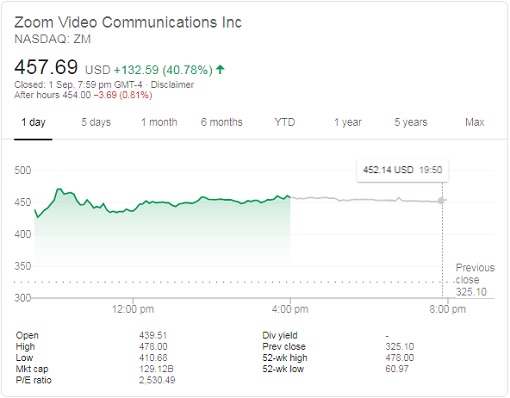
After working for a short 4-month in Japan, Eric Yuan decided to move to California’s Silicon Valley in 1997 to join the tech boom. Apparently, he was inspired by a speech from then-Microsoft CEO Bill Gates on the future of the Internet. Gates’ speech re-ignited his 1987’s idea to develop videoconferencing software to “see his girlfriend”, who lived a 10-hour train ride away.
To make matters worse, the train rides normally packed with people so much so that he could sleep standing up, not to mention constantly being squeezed by fellow passengers. The horrible experience made Eric Yuan wish there were a better way to be with his girlfriend without the need for such a miserable travel experience.
In an interview, Yuan revealed how he used to daydream during the long journey about ways to see his long-distance girlfriend (now wife). The young man was only 18 years old when he once told his sweetheart – “Someday, if I can have a smart device and with just one click I can talk with you, can see you. That was my daydream, right? And every day I thought about that.”
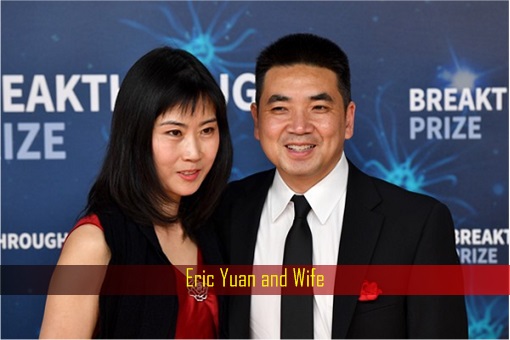
But before he could even step his foot on American soil to realize his dream, he was already hit with not one, not two, but eight rejections from the United States over his visa application. Yuan said – “I continued to apply again and again over the course of two years and finally received my visa on the ninth try.” He was 27 by the time the U.S. finally allowed the future billionaire into California in August 1997.
His options were limited, however, because he spoke very little English, not to mention his thick Chinese accent. His strength was in writing computer code. Hence, he ended up with an engineering job with WebEx, a web conferencing startup, which would be sold to Cisco 10 years later in 2007. As one of the first 20 employees, he was the pioneer batch.
Yuan said – “I couldn’t join a marketing team or a sales team. I had to go back to writing code. I knew two things from my father: keep working hard, stay humble, and someday you’ll be OK.” True enough, he stayed loyal with WebEx through Cisco’s US$3.2 billion acquisition and reaped the reward. He became quite wealthy. Yet, unlike some staff who took their earnings and left, Yuan stayed after the acquisition.

“He wasn’t ready to leave yet. He had a lot of loyalty,” – explained David Knight, a Vice President at WebEx at the time of the acquisition. Yuan was so attached to his first American company that he called WebEx his “baby”. Subrah Iyar, co-founder of WebEx, said – “He was sincere, almost naive in that he always cared about the WebEx customers and that they were not being attended to.”
When the WebEx celebrates its IPO on the NASDAQ National Market in 2000, Eric Yuan was there together with his mentor Subrah Iyar. After bought over by Cisco, Yuan rose through the ranks to become Cisco’s Vice President of engineering, earning “very high 6-figures” salary. But he was no longer happy after several years with Cisco.
“Every day, when I woke up, I was not very happy. I even did not want to go to the office to work,” – revealed Eric Yuan. He explained that he “did not see a single happy customer” after he talked to Cisco WebEx’s customers about the video-conferencing product he had helped build over the years. He blamed it on the slow evolvement of WebEx after it was sold.

So in 2011, Yuan pitched a new smartphone-friendly video conferencing system for Cisco management. The idea was rejected by his new bosses. It was the last straw that broke the camel’s back. Heck, Cisco was still using the same buggy code he wrote for WebEx roughly 20 years ago. He left Cisco to establish his own company – Zoom Video Communications.
He would later reveal – “Cisco was more focused on social networking, trying to make an enterprise Facebook. Cisco made a mistake. Three years after I left, they realized what I said was right.” But it was not a walk in the park for Yuan. He could not convince investors to back his new venture, forcing him to borrow money from friends and family instead.
Like his multiple failures in getting a visa to enter the U.S. in the 1990s, he received countless rejections over his idea of having another player in the already overcrowded market. After all, the year was 2011 and the market was saturated with video conferencing solutions. Exactly how could he compete with giants like Google, Skype, GoToMeeting and of course, his own product Cisco WebEx?
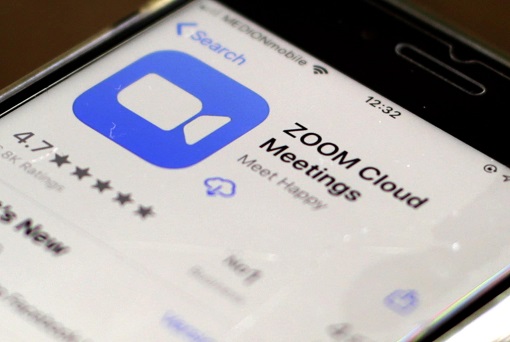
In fact, even his wife had questioned him over his decision to leave the comfortable life in Cisco to reinvent the wheel. He told his wife – “I know it’s a long journey and very hard, but if I don’t try it, I’ll regret it.” The persistent Mr. Yuan ignored sceptics and listened to the users or customers instead. More than 40 fellow WebEx engineers followed him in his new venture.
He said – “During the early stages of Zoom, I personally emailed every customer who canceled our service. One customer replied to my note and accused me of sending auto-generated emails ‘impersonating’ the CEO – he accused Zoom as a dishonest company! I wrote back that the email was indeed from me, and that it wasn’t generated by one of our marketing tools.”
However, the customer still didn’t believe Yuan. So the Zoom founder offered to meet him on a Zoom conference-call right away to prove it. That call never did take place, but at least the customer had stopped accusing Zoom of being dishonest! Amazingly, when Yuan thought back to his daydreaming 10-hour train rides in China, he realized his idea had finally come full circle.
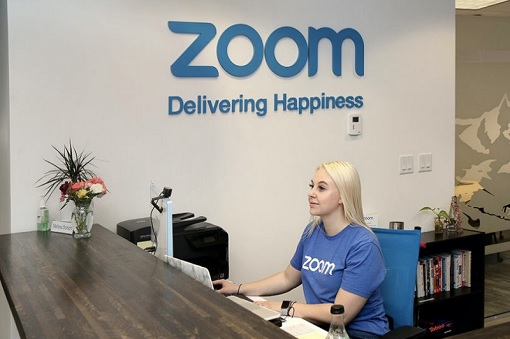
Mr. Yuan said – “When I started Zoom, I started to connect the dots. It’s like wow, I thought about that before, but the technology was not ready, but the idea was there.” Eventually, he managed to raise US$3 million in seed funding. Surprisingly, one of the investors was his former boss and WebEx founder – Subrah Iyar who is now Zoom adviser.
The sales pitch was to build a “greater WebEx” that would “make users happy”, and Mr. Subrah was sold. In fact, Subrah said that even if Yuan had told him that the plan was sending a person to planet Mars, he still would have invested. But Subrah was not the first investor who gave him money. That honour belongs to Dan Scheinman, Cisco’s former head of corporate development.
By the time Scheinman arrived at Coupa Cafe in Palo Alto on April 2011 for a demo prepared by Yuan, a US$250,000 cheque was already signed. Scheinman, who had also left Cisco, just wanted to know the name of the company to put on the cheque as there was yet a company. A demo was not needed as he told Yuan – “I believe in you and I don’t care what’s in that presentation, because this is about you.”
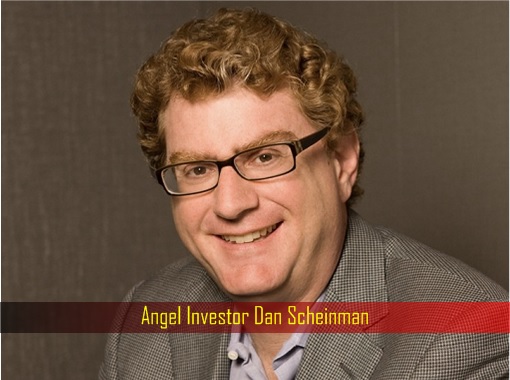
However, Yuan insisted to show his presentation. Scheinman was not only the first angel investor who gave Yuan money, but also introduced him to his cousin, Jim Scheinman, founding partner of Maven Ventures. Subsequently, not only Jim became an investor and adviser, but he actually helped Eric Yuan come up with four possible names for the company – Zippo, Hangtime, Poppy and Zoom.
When the first version of Zoom was introduced to the market in 2013, it attracted 3,500 businesses within 5 months of its launch. Two years later, about 65,000 companies were using the product, with over 40 million participants, partly because it was offered as a free product and largely because Yuan would get his hands dirty engaging and understanding customers’ problems.
It was this reason alone that when Zoom was plagued with security vulnerability in July this year, the founder and his team quickly fixed the issue with a minor security patch. When Zoom was listed in April 2019, offering 9.9 million “Class-A” shares in the IPO to raise up to US$346.9 million, it was selling like hot cakes. The stock climbed 72% in its first day of trading to US$62 a pop.

Eric Yuan became an instant billionaire at the age of 49 – his 20% stake in the company was worth about US$2.9 billion. Interestingly, Zoom’s growth at its initial stage was organic – through “word of mouth” promotion. The company did not have a marketing team until 2015. But customers were not the only group of people Yuan wanted to be happy.
In 2018, the Chinese immigrant has a 99% approval rating from employees on workplace review site Glassdoor, beating bosses like Facebook CEO Mark Zuckerberg. Glassdoor awarded Yuan Big Company CEO of the Year 2018, an award which honours the Top CEOs across North America and parts of Europe. More importantly, he spends valuable time with his three children.
Eric Yuan was ranked No. 192 on Bloomberg’s 500 richest people in the world in April this year. Today, barely 5 months later, he is No. 50 richest people. But money doesn’t motivate him. Moving forward, the billionaire admitted that there’s a limitation with today’s technology – you cannot shake hands or give a hug using video conferencing. He’s already toying with augmented reality.

Other Articles That May Interest You …
- Meet Malaysian-Born Cassandra Hsiao – Her Essay Got Her Into All 8 Ivy League Uni
- Meet SEA First Self-Made Woman Billionaire – Queen Of “Bikini” VietJet
- Meet “Mint”, A Beauty Queen Who Kneels To Thank Garbage Collector Mom
- Meet Singapore New Richest Man, Who Never Went To School
- Meet Millionaire Cheong Choon Ng – The Rainbow Loom Inventor Who Was Denied Local “Uni”, Due To Malaysia Racist Policy
- Meet Billionaire Stephen Hung, Who Just Ordered 30 Rolls-Royces For Louis XIII
- Meet Sabina Altynbekova, The VolleyBall Babe Whose Beauty Attracts Crazy Fans (Photo)

|
|
September 3rd, 2020 by financetwitter
|


|

|

|

|

|

|






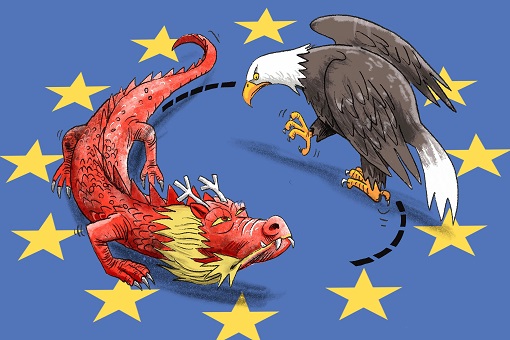





















Comments
Add your comment now.
Leave a Reply